The family that fights mercenaries and fascists together stays together
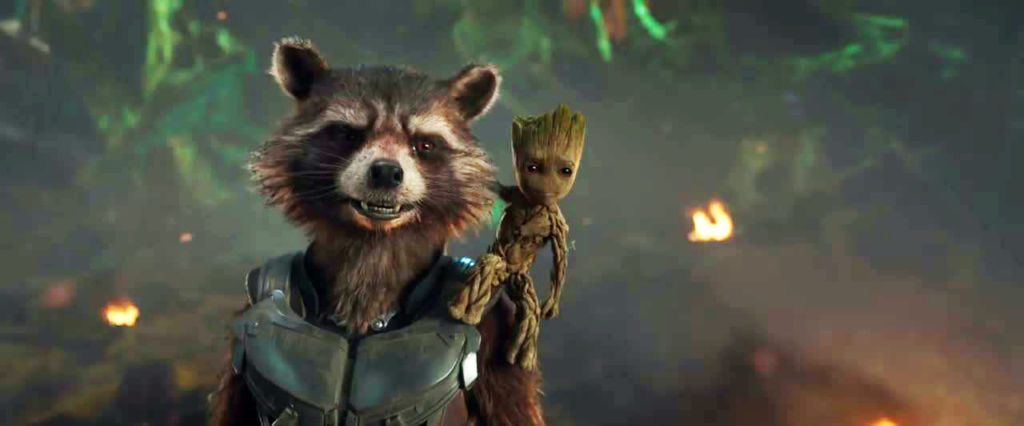
Part of why people loved Guardians of the Galaxy so much when it came out in 2014 was how surprised they were: The Guardians are not well-known characters outside of diehard Marvel Comics fans; no (at-the-time) major starred in the movie and few knew of writer-director James Gunn beyond his screenplay for Scooby Doo.
There was not much to expect. But Guardians of the Galaxy was a massive hit because it was thrilling, funny, nerdy and it featured Chris Pratt’s arrival as a major star. It’s considered by many to be the best or at least one of the best Marvel movies. So, Guardians of the Galaxy, Vol. 2 had a lot to live up to. And while I couldn’t be pleasantly amazed again, I was still impressed by how much fun I had. The movie does all the things tent-poll comic book movies are supposed to do while doing something very few of them manage: be completely character driven.
The Guardians are comprised of their wise-cracking, Earth-born captain Peter Quill, or Star-Lord (Pratt), green-skinned and humorless warrior Gamora (Zoe Saldana), rascally racoon-looking Rocket (voice by Bradley Cooper), oafish strongman Drax (Dave Bautista) and the tiny, talking tree toddler known as Groot, whose only words are “I am Groot.” (The phrase can mean anything and only Rocket knows how to interpret it.) The film begins with the Guardians killing a space monster for a gold-skinned race of fascist humanoids called the Sovereign in return for a prisoner of theirs: Nebula (Karen Gillan), the angry, blue-skinned sister of Gamora .
But as the Guardians leave the planet, the Sovereign attack; they are enraged when they discover Rocket has stolen a few of the Sovereign’s super-powered batteries. The Guardians escape but only because a mysterious, absurdly powerful man named Ego (Kurt Russell) incinerates the Sovereign ships. It turns out Ego is Peter’s long-lost father – who is also a millions-of-years-old god-like being called a Celestial. As Peter bonds with his dad, Gamora and Nebula fight, Drax has hilariously deep conversations with Ego’s empath companion Mantis (Pom Klementieff), while Rocket and Groot deal with the bounty-hunters and pirates called the Ravagers and their erstwhile leader and Peter’s former guardian Yondu (Michael Rooker).
There are a lot of characters and a lot of plot threads, and Gunn handles them expertly. He develops each character, giving them motivation, conflicts and almost complex emotions. The plots are created by the characters working to resolve these emotionally oriented problems, almost all of which revolve around how they create and sustain their families. In each case, these tough and rough heroes are resisting the connections right in front of them and seeking out the wrong goal, and they confront this error when they must fight a bunch of bad guys all at once. It’s a surprising moving and surprisingly sweet plot for a movie full of space explosions and weird-looking aliens.
The soundtrack is full of hits of the 1970s (ostensibly all found on Peter’s cassette tape Awesome Mix Vol. 2), and they are not used as ironic background noise but as commentary on the action: from “Brandy (You’re a Fine Girl)” by Looking Glass to “Father and Son” by Cat Stevens, from “My Sweet Lord” by George Harrison to “The Chain” by Fleetwood Mac. “Brandy” is used particularly powerfully, with Ego explaining that he is like the sailor in the song: “But he made it clear he couldn’t stay / No harbor was his home.” It’s a romantic notion, but it’s also a sad one.
By the end, Peter realizes that nothing can replace the loss of his father, not even a God. But a family of space swashbucklers might come close.
Guardians of the Galaxy, Vol. 2
Written and Directed by James Gunn
Starring Chris Pratt, Zoe Saldana and Kurt Russell
Rated PG-13
Originally published in LGBT Weekly
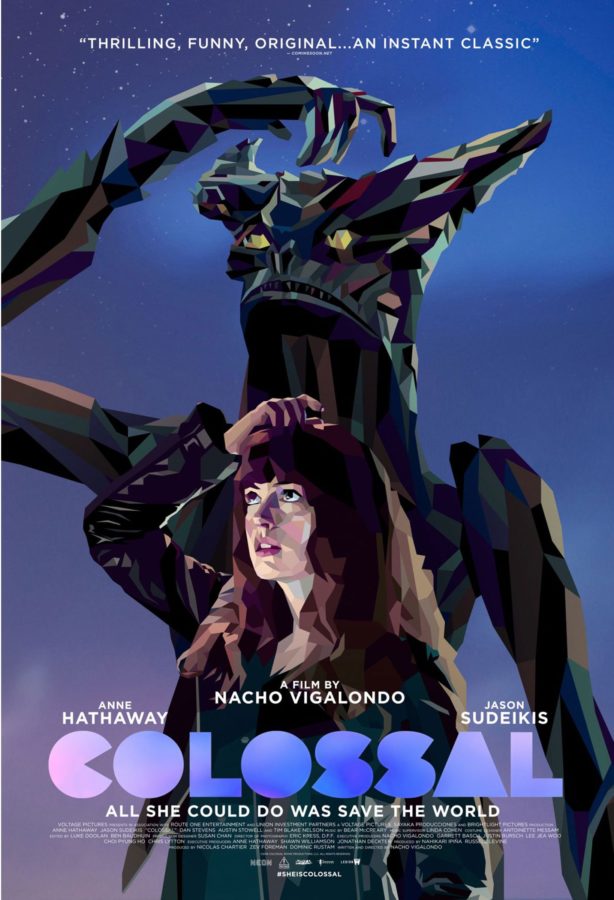 The strongest of my genre expectations is that every film will exist in some sort of genre. And then, I expect that the conventions of that genre will convene, maybe with a few slips or surprises, but nothing more. When a film like Colossal comes along – a film that defies, ignores, mashes up and spits on multiple genres – I couldn’t help but be confused. Through half of it, I watched with my head tilted as if I were a puppy watching his owner practice yoga. It’s a talky indie comedy, a Korean monster movie, a feminist suspense film and an addiction parable; it’s funny, creepy, shocking and weird as hell. Clearly, the studio didn’t know what to do with it, because the trailer makes it seem like a slapstick rom com star vehicle for Anne Hathaway and Jason Sudeikis. It’s not.
The strongest of my genre expectations is that every film will exist in some sort of genre. And then, I expect that the conventions of that genre will convene, maybe with a few slips or surprises, but nothing more. When a film like Colossal comes along – a film that defies, ignores, mashes up and spits on multiple genres – I couldn’t help but be confused. Through half of it, I watched with my head tilted as if I were a puppy watching his owner practice yoga. It’s a talky indie comedy, a Korean monster movie, a feminist suspense film and an addiction parable; it’s funny, creepy, shocking and weird as hell. Clearly, the studio didn’t know what to do with it, because the trailer makes it seem like a slapstick rom com star vehicle for Anne Hathaway and Jason Sudeikis. It’s not.
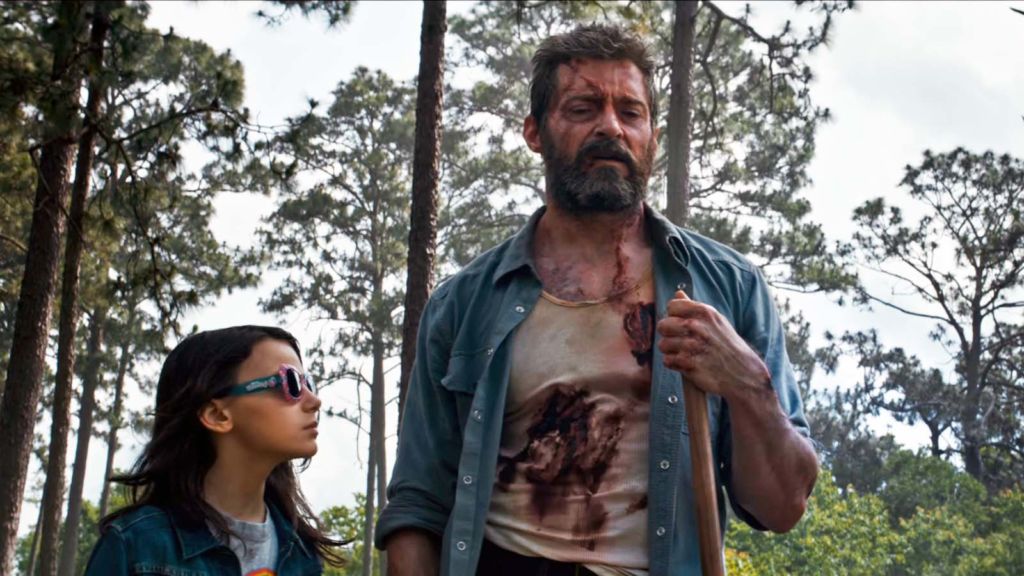 I received my first issue of The Uncanny X-Men in my Christmas stocking in 1985. I was 10, and it was the comic that all of my friends were reading. These boys were fixated on Wolverine, the cigar-chomping killing machine with unbreakable bones and long metal claws. He seemed to be half wild animal, half Charles Bronson in Death Wish.
I received my first issue of The Uncanny X-Men in my Christmas stocking in 1985. I was 10, and it was the comic that all of my friends were reading. These boys were fixated on Wolverine, the cigar-chomping killing machine with unbreakable bones and long metal claws. He seemed to be half wild animal, half Charles Bronson in Death Wish.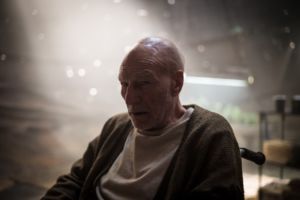
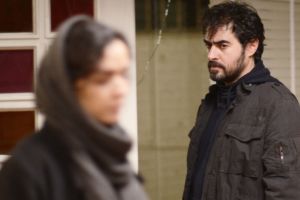 Outside of cinephiles who have seen his Oscar-winning A Separation, Asghar Farhadi is not well known among Americans. But his name was thrust into the news over the last few weeks because of President Trump’s executive order banning travel of most anyone, but particularly Muslims, from seven majority Muslim countries. (The list does not include any majority Muslim country where Trump and his family have business dealings. Of course.) Because of the ban, Farhadi, who is from Iran, cannot travel to the United States for the Academy Awards, where his newest film The Salesman is up for Best Foreign Language Film; even if the stay of that order allows his visit, Farhadi is boycotting in protest.
Outside of cinephiles who have seen his Oscar-winning A Separation, Asghar Farhadi is not well known among Americans. But his name was thrust into the news over the last few weeks because of President Trump’s executive order banning travel of most anyone, but particularly Muslims, from seven majority Muslim countries. (The list does not include any majority Muslim country where Trump and his family have business dealings. Of course.) Because of the ban, Farhadi, who is from Iran, cannot travel to the United States for the Academy Awards, where his newest film The Salesman is up for Best Foreign Language Film; even if the stay of that order allows his visit, Farhadi is boycotting in protest.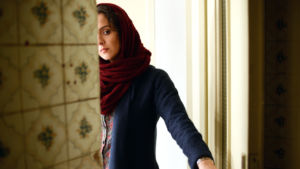 Death of Salesman seems to have no clear connection to the film’s plot until the last 20 minutes. Then, Miller’s commentary on obligation, illusion, sacrifice and failure are reimagined through Emad and Rana’s acting out of their moral duties as well as an American play. If there is any justice, publicity over Farhadi’s absence from the Academy Awards will lead American audiences to experience his art and his insight into America’s greatest drama.
Death of Salesman seems to have no clear connection to the film’s plot until the last 20 minutes. Then, Miller’s commentary on obligation, illusion, sacrifice and failure are reimagined through Emad and Rana’s acting out of their moral duties as well as an American play. If there is any justice, publicity over Farhadi’s absence from the Academy Awards will lead American audiences to experience his art and his insight into America’s greatest drama.